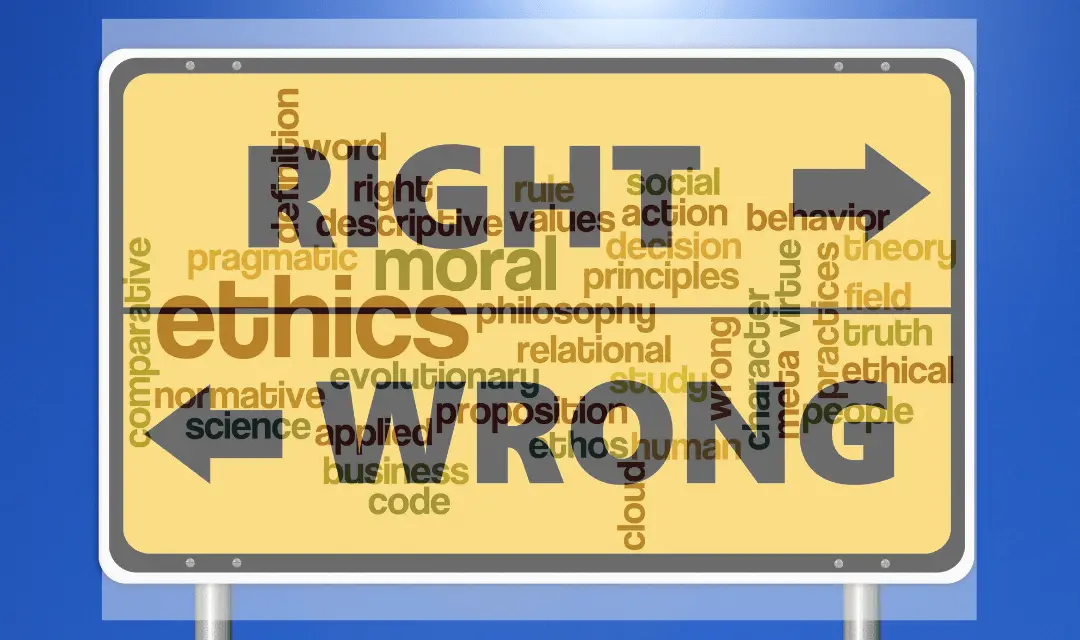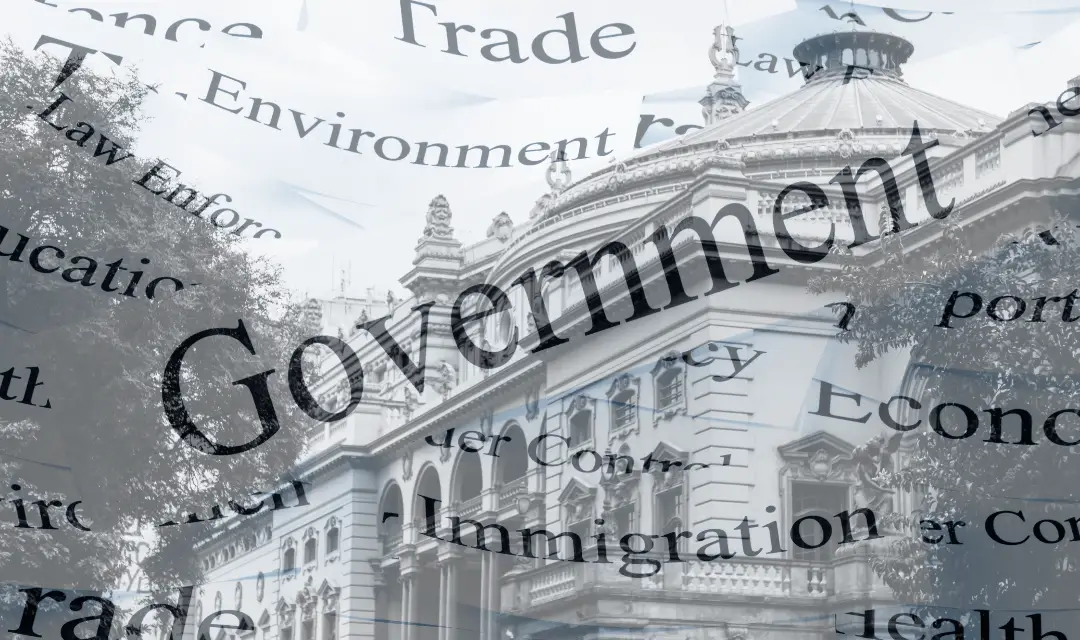Introduction
“When we are public officials, we are not invited because of our physical or sexual good looks – we are being invited in connection with a certain government project.” Delivered by the great Senator Miriam Defensor-Santiago, during the 3rd Joint Public Hearing of the Senate Blue Ribbon Committee on the controversial NBN-ZTE Deal on September 26, 2007.
What is Graft and Corruption?
Graft and corruption acts and practices are wrongdoings perpetrated usually by public officers, which are designed to obtain valuable consideration either from the general public, in consideration of certain functional performance or omission thereof, or from the government itself through misappropriation, misuse, or abuse of public funds to the perpetrator’s benefit or anyone associated with him but to the damage of the government or the State.
Graft and corrupt practices may have been similarly committed when a public officer favors a certain person or class of individuals, in relation to the former’s function as a public official and whether the same is in connection of whatever favor that can be asked of and from him by reason of his office.
Private individuals can, as well, commit corruption when they do the same or related acts in connection, collusion, connivance, or conspiracy with public officers, relative to the performance of his duties as such.
Ancient Story
Corruption is as old as planet earth. Corruption is existent in all phases of civilizations. In Chinese mythology, Zao Jun or most commonly known as the “Kitchen God” monitors the behaviors of every household over the year and report it to Yu Huang Da Di, the “Jade Emperor.”
The members of the household are either punished or rewarded by Jade Emperor, or the Emperor of the Heavens, based on the reports of the Kitchen God. Now, in order that the family members get rewards instead of punishment, they smear the lips of Zao Jun with honey or cake to sweeten his words to Emperor Jade. This can be considered a form of corruption even during ancient times.
Etymology
The word corruption came from the Latin words “com” which means “with or together,” and “rumpere” meaning, “to break.” Forming these words concludes that to commit corruption is to break one’s integrity, trustworthiness, credibility, and image.
Graft Laws | Importance
It is so important that every State has its own anti-corruption laws to prevent the embezzlement of public funds and converting them for the selfish use of these corrupt people. This is to avoid being bamboozled by our so-called “trusted” public officials and officers who hold significant offices in our government.
An anti-corruption law is one which prohibits, sanctions, and penalizes certain acts constituting corrupt practices of persons who hold public office whether local or national public position.
According to Merriam Webster’s Dictionary, graft is:
“the acquisition of gain (such as money) in dishonest or questionable ways.”
Corruption, on the other hand means:
“dishonest or illegal behavior especially by powerful people” or “inducement to wrong by improper or unlawful means.”
These two terms are hindrance to a clean and honest government.
Social Disease
Internationally speaking, the United Nations (UN) convened on October 31, 2003, which promulgated the UN General Assembly Resolution 58/4 or the UN Convention against Corruption.
This was promulgated owing to the growing concerns on the seriousness of corruption in every country, which may be characterized as plague, to which, the international community has the duty to combat this social disease.
Is corruption a crime?
Corruption is definitely a crime. The legal maxim, nullum crimen nullum poena sine lege, provides that there can be no crime when there is no law punishing it. In our jurisdiction, corruption is punished by our penal laws.
Penal Laws | Briefly Looking Back
Let us look back on the rich history of the penal laws in our country penalizing corruption.
Our Constitution, being the fundamental law of the land, provides impeachment as the sole form and modality of removing a President, Vice President, Members of the Supreme Court and Constitutional Commissions, and the Ombudsman for conviction of bribery and graft and corruption.
The 1935 Constitution [Philippines] provides that the President, the Vice-President, the Justices of the Supreme Court, and the Auditor General shall be removed from office on impeachment for, and conviction of, xxx, bribery, or other high crimes.1
The subsequent 1973 Constitution [Philippines] removed as impeachable officer the Auditor General and added graft and corruption among the grounds.2
The present 1987 Constitution3[Philippines], added the Ombudsman among those impeachable officers and adopted the grounds laid down in the previous Constitution.
Act No. 3815 | The Revised Penal Code of the Philippines
On December 8, 1930, Act No. 38154 or the Revised Penal Code (RPC) was enacted. It defines and punishes the crimes committed by Public Officers, under Title Seven, Book 2, these are, among others, Bribery,5 Indirect Bribery,6 Qualified Bribery,7 and Malversation of Private Funds or Property.8

These are acts that are being influenced by and with corruption. These are committed by public officers in connection with their official position relative to some interests favoring private individuals or even themselves.
The RPC even punishes private individuals who are corrupting these public officers.9 Private individuals do these wrongful acts by “making offers or promises, or gives gifts or presents to a public officer” and “offers or promises are made or the gifts or presents are given to a public officer under circumstances that will make the public officer liable for direct bribery or indirect bribery.”10
Republic Act No. 1379
On June 18, 1955, Congress enacted Republic Act [RA] No. 137911 or “Act Declaring Forfeiture in Favor of the State any Property found to have been unlawfully acquired by any Public Officer or Employee and providing for the Proceedings therefor.”
This law penalizes “any public officer or employee who shall xxx transfer or convey any unlawfully acquired property … The same repression shall be imposed upon any person who shall knowingly accept such transfer or conveyance.”12
Republic Act No. 3019 | Anti-Graft and Corrupt Practices Act
On August 17, 1960, Republic Act No. 301913 or the Anti-Graft and Corrupt Practices Act was legislated and enacted in the Philippines to deter public officials and employees from committing acts of dishonesty and improve the tone of morality in public service.”14
Republic Act No. 7080
On July 12, 1991, R.A. No. 708015 was enacted, defining and penalizing the crime of Plunder. This is committed by:
“any public officer who, by himself or in connivance with members of his family, relatives by affinity or consanguinity, business associates, subordinates or other persons, amasses, accumulates or acquires ill-gotten wealth through a combination or series of overt or criminal acts as described in Section 1(d) hereof in the aggregate amount or total value of at least Fifty million pesos (P50,000,000.00)”16
Republic Act No. 9184
Then on January 10, 2003, Congress enacted the RA No. 918417 or the Government Procurement Reform Act in consonance with the State Policy to promote the ideals of good governance.
This law regulated the procurement of all the Government agencies by promoting transparency in the procurement process and implementation of procurement contracts.18
This measure seeks to prevent corruption, and a top-level one, as procuring official properties requires that there shall be at least three qualified bidders. With this, procurement cannot be confined solely to an enterprise as this could form clouds of doubt of corruption.
Private Individuals
Our anti-corruption laws do not only penalize public officers in their corrupt practices, but private individuals, as well, who are involved in certain acts and who are in conspiracy with the public officers.
As the term says, it takes two to tango. There can be no corrupt public officers if there will be no private individuals who will incite them to perform said acts.
Aside from penal sanctions, what are the consequences of corruption?
Penal sanctions themselves are punitive in nature. However, not everything above the soil is guided only with legalities. We are, also, guided with moral and ethical principles.

Not only a legal issue but likewise of moral principles
Indubitably, corruption is not only a legal issue, but an issue on morality, as well.
Cambridge dictionary defined moral as:
“relating to the standards of good or bad behavior, fairness, honesty, etc. that each person believes in, rather than to laws.”
“Ethics,” on the other hand is the defined by Meriam Webster’s as the discipline dealing with what is good and bad and with moral duty and obligation.”
 The author believes that those people, who are engaging in corrupt practices, lack moral and ethical values. They are all self-centered because, in these practices, they only focus on their principal and personal interests and gratifications and not for the interest of the general public.
The author believes that those people, who are engaging in corrupt practices, lack moral and ethical values. They are all self-centered because, in these practices, they only focus on their principal and personal interests and gratifications and not for the interest of the general public.
Since corruption is an act of a human, it is carried out with moral guilt. This is because corruption is contrary to the established moral norms and standards accepted generally in civilized societies.
Besmirched reputation
One who corrupts will clearly obtain a derogatory record not only in the legal system but, similarly, his/her personality will be scarred and tainted with immorality. Once a public officer is stigmatized with corruption, he will have lost his moral fitness to serve his country or even assume a public office.
You reap what you sow, you get what you deserve. Judgment not only in the eyes of justice, but most importantly, in the eyes of God or Supreme Being.
What is considered government under anti-corruption laws?
The most common definition of the term government is the “group of people who control and make decisions for a country, state, etc.”19

However, under RA 3019, or the Anti-graft and Corrupt Practices Act, the “government” includes the national government, the local governments, the government- owned and government-controlled corporations, and all other instrumentalities or agencies of the Republic of the Philippines and their branches.
In our jurisdiction, the national government performs the central administration of the State, in terms of inherent Police, Eminent Domain, and Taxation powers.
Corollary to local governments is the term decentralization, which “simply means the devolution of national administration, not power, to local governments. Local officials remain accountable to the central government as the law may provide.”20
Government, being one of the elements of the State, is the agency or instrumentality through which the will of the State is formulated, expressed and realized.21 Hence, any act of the Government, whatever it may be, is imputable either to the State or to the Government itself.
In its concept, what is RA 3019 in the Philippines all about? | Heart of Corruption Laws
RA 3019, in its simplest comprehension, is all about punishing the wrong doings of every public officer in connection with their public office.
As enshrined in Section 1 of the said law:
“it is the policy of the Philippine Government, in line with the principle that a public office is a public trust, to repress certain acts of public officers and private persons alike which constitute graft or corrupt practices or which may lead thereto.”22
Clearly, corruption is the evil sought to be prevented by the punitive sanctions provided under this law.
With this combative concept of RA 3019, the law is clear that its aim is to suppress and disassociate the term “corrupt” in relation with the term “government.”
This is to humanize the legal term- public office is a public trust, thus in order that the citizens trust their government, the government itself must be free from corrupt practices and corrupt officers.
What does the term “receiving any gift? include?
Section 2 (c) of RA 3019 provides:
“(c) ‘Receiving any gift’ includes the act of accepting directly or indirectly a gift from a person other than a member of the public officer’s immediate family, in behalf of himself or of any member of his family or relative within the fourth civil degree, either by consanguinity or affinity, even on the occasion of a family celebration or national festivity like Christmas, if the value of the gift is under the circumstances manifestly excessive.”23
This proviso is exclusive. An officer is deemed to have received a gift once he/she accepts, directly or indirectly, a gift from persons who are not related to him by affinity or by blood.
Gift, as defined in Meriam-Webster, is “something voluntarily transferred by one person to another without compensation.”
Quid Pro Quo
However, in this country, it is stereotyped that, specially, when you are a public officer, you do not receive a gift without a favor in return, or an officer receives a gift, simply by reason of the office he holds.
 We look, as well, to the term “manifestly excessive.” Does the law provide an amount which sets as threshold for a filing of an anti-graft and corrupt practices law?
We look, as well, to the term “manifestly excessive.” Does the law provide an amount which sets as threshold for a filing of an anti-graft and corrupt practices law?
In this transactions, “manifestly excessive” may correspond to the insatiability of certain public official, who may be notorious in asking for something in lieu of favors.
This will be further discussed below concerning these unsolicited gifts and their monetary value.
How should RA 3019 be construed?
Statutes are to be given either strict or liberal construction in order to accomplish the purpose and intent of said legislative act.
Strict construction
Strict construction is that “construction according to the letter of a statute, which recognizes nothing that is not expressed, takes the language used in its exact meaning, and admits no equitable consideration.24
In other words, Judges have no discretion on how to interpret and apply a certain proviso in connection with a case. He should apply what is provided by the law.
Liberal approach
Liberal construction, on the other hand means “equitable construction as will enlarge the letter of a statute to accomplish its intended purpose, carry out of its intent, or promote justice.”25
In liberally constructing a Statute, Judges are given judicial discretion as regard the interpretation and application of an ambiguous law.
Penal Statutes | Liberally Construed
In our jurisdiction, penal statutes are to be strictly construed against the government and liberally in favor of the accused.26
In the interpretation of a penal statute, the tendency is to give it careful scrutiny, and to construe it with such strictness as to safeguard the rights of the defendant.27
The reason on strict construction of penal statutes is explained by the Supreme Court in the case of People vs. Purisima,28 which reads:
“The purpose is not to enable a guilty person to escape punishment through a technicality but to provide a precise definition of forbidden acts.”29
Here, RA 3019, being a special penal statute prohibiting an act (mala prohibita), as in this law, graft and corrupt practices acts, good faith is immaterial.
Thus, when those defined punishable acts were committed by an offender, it necessarily implies a guilty intent [intent to perpetrate the act] even though he has done the same in good faith.
Hence, there is no room for interpretation specially in crimes mala prohibita where it has plain and positive words prohibiting something to be done.
Who may be held liable under Section 3 of RA 3019?
RA 3019 mainly punishes public officers who are guilty of committing any of the acts enumerated under Section 3 of the law.

In Section 3 (a), there are two public officers liable for corrupt practices. First, the public officer who “persuades, induces, or influences another public officer to perform an act constituting a violation of rules and regulations duly promulgated by competent authority or an offense in connection with the official duties of the latter; and second, the public officer “who allows himself to be persuaded, induced, or influenced.”30
In Section 3 (b), a public officer may be held liable when he directly or indirectly requested or received any gift, present, share, percentage, or benefit, for himself or for any other person, in connection with any contract or transaction between the Government and any other party, wherein he has in his official capacity to intervene under the law.31
Section 3 (c) holds liable a public officer, who, in any manner or capacity, has secured or obtained or will secure or obtain any Government permit or license for another person.31
Section 3 (d) penalizes any public officer who accepts or having any member of his family accept employment in a private enterprise which has pending official business with him or within 1 year after its termination. It is to be understood that this provision prohibits the employment either of the public officer or any of his family member in a private enterprise.31
Section 3 (e) punishes officers and employees of offices or government corporations charged with the grant of licenses or permits or other concession, who acted through manifest partiality, evident bad faith or gross inexcusable negligence, and said act caused any undue injury to any party, including the government, or said public officer given any private party any unwarranted benefits, advantage or preference in the discharge of his official, administrative or judicial functions.31
Under Section 3 (f), a public officer is punished, when, after due demand or request, he neglects or refuses to act without sufficient justification, to act within reasonable time on any manner pending before him.31
Section 3 (g) punishes any public officer who entered, on behalf of the government, into any contract or transaction manifestly and grossly disadvantageous to the Government.31
Section 3 (h) punishes any public officer who has a direct or indirect financial or pecuniary interest in any business, contract or transaction and he intervenes or takes part in his official capacity or the Constitution or any law simply prohibits him from having any interests.31
Section 3 (i) punishes any public officer who is a member of a board, panel, or group, which exercises discretion in approving any transaction or act, and becomes interested whether directly or indirectly, for personal gain or having material interest over the same.31
Section 3 (j) punishes any public officer who knowingly approved or granted any license permit, privilege or benefit in favor of any person not qualified for or not legally entitled to such license, permit, privilege or advantage, or of a mere representative or dummy of one who is not so qualified or entitled.31
In Section 3 (k), a public officer is liable when he divulged any valuable information of a confidential character, he acquired by reason of his office or official position, to any unauthorized persons, or he has released such information in advance of its authorized release date.31
Moreover, the law punishes as well private individuals who give present, discount, and the like or offers the public officers in connection with subparagraphs b, c, d, and k.
Who are deemed included as public officer under the law? Who is considered a government official under anti-corruption laws?
 “Public officer” includes elective and appointive officials and employees, permanent or temporary, whether in the classified or unclassified or exempt service receiving compensation, even nominal, from the government as defined in the preceding subparagraph.32
“Public officer” includes elective and appointive officials and employees, permanent or temporary, whether in the classified or unclassified or exempt service receiving compensation, even nominal, from the government as defined in the preceding subparagraph.32
Considering that this law was published way back 1960, the rankings of employees: classified, unclassified or exempt, these were derived from the old Civil Service Law.
Elective officials are those who are elected by the electorate in a popular election.
The competitive or classified service shall include positions for appointment to which prior qualification in an appropriate examination is required.33
The non-competitive or unclassified service shall be composed of positions expressly declared by law to be in the non-competitive or unclassified service or those which are policy-determining, primarily confidential or highly technical in nature.
The following specific officers and employees shall be embraced in the non- competitive or unclassified service:
- Officers appointed by the President of the Philippines with the consent of the Commission on Appointments, except provincial treasurers and assistant chiefs of bureaus and offices, and all other inferior officers of the Government whose appointments are by law vested in the President alone;
- The secretarial and office staff of the President, of the Vice-President, of the President of the Senate, of the Speaker of the House of Representatives and of each member of the Congress of the Philippines including the personnel of all the committees of both Houses of the Congress;
- One private secretary and one assistant private secretary to each of the several Heads of Departments and to each of the Justice of the Supreme Court and the Court of Appeals;
- Officers as may be required and chosen by the Congress of the Philippines in accordance with the Constitution;
- Members of the various faculties and other teaching force of the University of the Philippines and other government colleges offering courses on the collegiate level, including the business directors and registrars of said institutions;
- Secretaries of provincial, city and municipal boards or councils;
- Unskilled laborers whether emergency, seasonal or permanent; and
- All supplementary employees in the Senate and the House of Representatives of Congress34
The Exempt Service.35 The exempt service shall consist of the following:
- Elective officers;
- Members of the commissioned and enlisted service of the Army, Navy and Air Force of the Philippines; and
- Persons employed on a contract
What are the corrupt practices acts under the law?
The law enlisted 11 corrupt practices acts under Section 3 [RA 3019]. However, if we are to enlist these 11, it would be lengthy, so the author deemed it wise to subgroup these acts into four classifications these corrupt practices.

First, those involving acts by requesting or receiving any gift or benefit.
Sections 3 (b), (c), (d) pertains to corrupt acts of the public officer motivated by requesting or receiving gift, present, share, percentage, offers or other pecuniary or material benefit from another person.
In section 3 (b) the gifts or present thereto is equivalent to intervention in any contract between the government and other party.
Next, in section 3 (c), the gifts or presents are equivalent to a favorable government license or permit to another person.
Then, in section 3(d) the offer pertained thereto is the benefit of employment in a private enterprise, in which the public officer had pending official business.
The second group pertains to any acts which cause injury to the government.
Sec. 3 (e) pertains to any acts with manifest partiality, evident bad faith, and gross inexcusable negligence which caused undue injury to the government or any party or giving any party unwarranted benefits, advantage or preference in the discharge of his administrative or judicial functions.
Sec. 3 (g) pertains to the act of the public officer of entering into any contract or transaction which is manifestly or grossly disadvantageous to the government.
The third group relates to acts in connection with their personal interests.
Sec. 3 (h) pertains to the direct or indirect financial or pecuniary interest of a public officer, in his official capacity, in a business, contract transaction in connection with which he intervenes or takes part or simply, he is being prohibited by the Constitution or any laws from having any interest.
Sec. 3 (i) punishes the directly or indirectly becoming interested of a public officer, for personal gain, or he having a material interest in any transaction or act requiring the approval of the board, panel or group in which he is a member and exercises discretion in such approval.
This interest for personal gain has the presumption against these public officers who approved a manifestly unlawful, inequitable or irregular transaction or acts by the board, panel or group in which they belong.
The last group refers to corrupt practices which are done willfully and knowingly.
Sec. 3 (a) pertains to the acts of persuading, inducing, or influencing, a public officer to perform such an illegal act.
Sec. 3 (f) pertains to acts of neglect or refusal to act within a reasonable time and without sufficient justification to any matter pending before him, after due demand or request.
The officer neglects or refuses for purposes of directly or indirectly obtaining from any other person interest any material or pecuniary benefit or advantage or for favoring his own interest or giving undue advantage or discriminating against other interested parties.
Sec. 3 (j) pertains to act of the public officer by knowingly approving or granting any license, permit, privilege or benefit in favor of any person not qualified for or not legally entitled to such license, permit, privilege or advantage, or of a mere representative or dummy of one who is not so qualified or entitled.
Lastly, Sec. 3(k) pertains to the act of the public officer by divulging valuable information of a confidential character, acquired by his office or by him on account of his official position to unauthorized persons, or releasing such information in advance of its authorized release date.
Discuss the prohibition on private individuals, certain relatives, and members of the congress under the law
Section 4 of the law [RA 3019] prohibits the family members of, or any other person having a close personal relation with a public officer to capitalize, exploit, or take advantage of such relationship by, directly or indirectly, requesting or receiving any present, gift or material or pecuniary advantage from any other person having some business, transaction, application, request or contract with the government.
This provision speaks of the family members and close peers of a public officer taking advantage the privilege and office of the latter to commit any corrupt acts, obviously for their own interests.

The author believes that this provision prevents the abusive character of a person clinging to a strong wall, which however, is vulnerable of collapsing once the claws of the law scratch these wrongdoings.
Section 5, on the other hand, prohibits the spouse or for any relative, by consanguinity or affinity, within the third civil degree, of the President of the Philippines, the Vice-President of the Philippines, the President of the Senate, or the Speaker of the House of Representatives, to intervene, directly or indirectly, in any business, transaction, contract or application with the Government.36
Nonetheless, there is an exception provided that this section shall not apply to any person who, prior to the assumption of office of any of the above officials to whom he is related, has been already dealing with the Government along the same line of business, nor to any transaction, contract or application already existing or pending at the time of such assumption of public office, nor to any application filed by him the approval of which is not discretionary on the part of the official or officials concerned but depends upon compliance with requisites provided by law, or rules or regulations issued pursuant to law, nor to any act lawfully performed in an official capacity or in the exercise of a profession.37
In this provision, the said relatives of the high-ranking officials of the government are, generally, not allowed to directly or indirectly intervene with any of the transactions of the government. However, as an exception, this prohibition will not apply to these persons who are already dealing with the government prior to the assumption of office of any of those officials.
The exception speaks of “delicadeza.” Why would they clung to these transactions even they are doing it long before the assumption of these high-ranking officials.
To the author’s mind, it is a moral obligation for these relatives to halt these transactions while their relatives are sitting officials to remove the cloud of doubt.
Section 6 prohibits any Member of the Congress during the term for which he has been elected, to acquire or receive any personal pecuniary interest in any specific business enterprise which will be directly and particularly favored or benefited by any law or resolution authored by him previously approved or adopted by the Congress during the same term.36
The provision of this section shall apply to any other public officer who recommended the initiation in Congress of the enactment or adoption of any law or resolution, and acquires or receives any such interest during his incumbency.
It shall, likewise, be unlawful for such member of Congress or other public officer, who, having such interest prior to the approval of such law or resolution authored or recommended by him, continues for thirty days after such approval to retain such interest.
This prohibition speaks of conflict of interest between the member of the Congress and his private life.
A sitting member shall not receive or acquire any interest from any business enterprise which might be favored or benefited of a law or resolution, by which said member of the Congress personally authored.
This is to protect the integrity of these members as regards the fair and reasonable law-making.
Explain the duty of the public officer to file his Statement of Assets and Liabilities under the law and in the light of the current policy of the Office of the Ombudsman on SALN
The 1987 Constitution provides that a public officer shall submit a declaration under oath of his assets, liabilities and net worth. This constitutional provision is not a self-executing one.
That is why the legislature enacted implementing laws to provide details as to the submission of this significant document.
That is also why the Congress has enacted RA 3019 and RA 671338 containing provisions on the submission of the declaration under oath of the public officer’s assets, liabilities and net worth.
This periodic submission of the SALN is a reasonable and is in line with the constitution. It was explained in the case of Morfe vs. Mutuc,39 pertinent provision of which reads:
“It would be to dwell in the realm of abstractions and to ignore the harsh and compelling realities of public service with its ever-present temptation to heed the call of greed and avarice to condemn as arbitrary and oppressive a requirement as that imposed on public officials and employees to file such sworn statement of assets and liabilities every two years after having done so upon assuming office. The due process clause is not susceptible to such a reproach. There was therefore no unconstitutional exercise of police power.”40
Can a public officer resign during the pendency of his case under this law?
No. Section 12 is clear. “No public officer shall be allowed to resign or retire pending an investigation, criminal or administrative, or pending a prosecution against him, for any offense under this Act or under the provisions of the Revised Penal Code on bribery.”

The reason was elucidated in the case of Estrada vs. Desierto,41 viz:
“It is to prevent the act of resignation or retirement from being used by a public official as a protective shield to stop the investigation of a pending criminal or administrative case against him and to prevent his prosecution under the Anti-Graft Law or prosecution for bribery under the Revised Penal Code. To be sure, no person can be compelled to render service for that would be a violation of his constitutional right.42
“A public official has the right not to serve if he really wants to retire or resign. Nevertheless, if at the time he resigns or retires, a public official is facing administrative or criminal investigation or prosecution, such resignation or retirement will not cause the dismissal of the criminal or administrative proceedings against him. He cannot use his resignation or retirement to avoid prosecution.”41
Can the public officer be suspended during the pendency of his case?
Yes. An incumbent public officer can be suspended during the pendency of his case for violation of this law.
Section 13 of the law [RA 3019] provides that:
“any incumbent public officer against whom any criminal prosecution under a valid information under this Act or under Title Seven Book II of the Revised Penal Code or for any offense involving fraud upon government or public funds or property whether as a simple or as complex offense and in whatever stage of execution and mode of participation, is pending in court shall be suspended from office.43
“Should he be convinced by final judgement, he shall lose all retirement or gratuity benefits under any law, but if he is acquitted, he shall be entitled to reinstatement and to the salaries and benefits which he failed to receive during suspension, unless in the meantime administrative proceedings have been filed against him.44
In the event that such convicted officer, who may have been separated from the service has already received such benefits he shall be liable to restitute the same to the government. (As amended by BP Blg. 195, March 16, 1982).”44
Jurisprudence provides that preventive suspension is distinct from penalty. In the case of Villaseñor vs. Sandiganbayan,45 the Supreme Court held:
“imposed during the pendency of proceedings, preventive suspension is not a penalty in itself. It is merely a measure of precaution so that the employee who is charged may be separated, for obvious reasons, from office. Thus, preventive suspension is distinct from the penalty.46
“While the former may be imposed on a respondent during the investigation of the charges against him, the latter may be meted out to him at the final disposition of the case.”46
What is the rule with respect to unsolicited gifts or presents of small or significant value?
Sections 3 (b) and (c) talks about receiving or requesting of any gifts, etc.
The rule is, these unsolicited gifts or presents of small or insignificant value offered or given as a mere ordinary token of gratitude or friendship according to local customs or usage, shall be excepted from the provisions of RA 3019.47
However, the value of a manifestly excessive gift given to a public officer does not have a threshold amount for it to become violative of the provisions of the law.
In explaining this, the Supreme Court discussed in the case of Mendoza-Ong vs. Sandiganbayan,48 that:
“Section 3 (c) earlier quoted in the present case applies regardless of whether the gift’s value is manifestly excessive or not, and regardless of the occasion.49
“What is important here, in our view, is whether the gift is received in consideration for help given or to be given by the public officer.49
“The value of the gift is not mentioned at all as an essential element of the offense charged under Section 3 (c), and there appears no need to require the prosecution to specify such value in order to comply with the requirements of showing a prima facie case.”49
Discuss the ground for dismissal of public officer from office because of unexplained wealth
In Republic vs. Sereno,50 the Supreme Court ruled that “failure to comply” with the law is “prima facie evidence of unexplained wealth, which may result in the dismissal from service of the public officer.” The law being referred to is Sec. 8 of RA 3019.
There is prima facie evidence once the public officer has been found to have acquired during his incumbency xxx, an amount of property and/or money manifestly out of proportion to his other lawful income, and no satisfactory justification showing on how he acquired through legitimate means the said property.
We must bear in mind that “public officials and employees and their families shall lead modest lives appropriate to their positions and income. They shall not indulge in extravagant or ostentatious display of wealth in any form.”51
Related Jurisprudence
To reiterate, these Anti-corruption laws are in accord with our constitution. These are carefully crafted in order to suppress the corruption and to maintain the clean, good, and honest government.
Valid exercise of Police Power
As the author mentioned, RA 3019 is a valid exercise of police power of the State. Morfe vs. Mutuc39 delivered the significance of the enactment of the said law, viz: “It was declared to be a state policy “in line with the principle that a public office is a public trust, to repress certain acts of public officers and private persons alike which constitute graft and corrupt practices, or which may lead thereto.”52
Three Acts
The case of Palacios vs. People,53 clarified that Section 3(b) of the law penalizes three acts. The Supreme Court held:
“Section 3(b) penalizes three distinct acts – 1) demanding or requesting; 2) receiving; or 3) demanding, requesting and receiving – any gift, present, share, percentage, or benefit for oneself or for any other person, in connection with any contract or transaction between the government and any other party, wherein a public officer in an official capacity has to intervene under the law.54
“Each of these modes of committing the offense is distinct and different from one another. Proof of existence of any of them suffices to warrant conviction.”54
Three Modes
In the recent case of Cabrera vs. People,55 the Supreme Court stressed that in order to convict a public officer of violation of Sec. 3 (e), the three modes of committing it namely, “manifest partiality,” “evident bad faith,” or “gross inexcusable negligence,” are not separate offenses and proof of the existence of any of these three in connection with the prohibited acts committed, is sufficient. As explained by the court:
“x x x. There is “manifest partiality” when there is clear, notorious, or plain inclination or predilection to favor one side or person rather than another.56
“Evident bad faith” com1otes not only bad judgment but also palpably and patently fraudulent and dishonest purpose to do moral obliquity or conscious wrongdoing for some perverse motive or ill will.56
“Evident bad faith” contemplates a state of mind affirmatively operating with furtive design or with some motive of self-interest or ill will or for ulterior purposes.56
“Gross inexcusable negligence” refers to negligence characterized by the want of even the slightest care, acting or omitting to act in a situation where there is a duty to act, not inadvertently but willfully and intentionally, with conscious indifference to consequences insofar as other persons may be affected. (Citations omitted)”56
The Arias Doctrine
This doctrine is extracted from the ruling of the Supreme Court in the case of Arias vs. Sandiganbayan57 wherein, heads of offices are not required to examine every single detail before they approve and affix their signatures to certain documents. As discussed by the court:
“All heads of offices have to rely to a reasonable extent on their subordinates and on the good faith of those who prepare bids, purchase supplies, or enter into negotiations. x x x.58
“There has to be some added reason why he should examine each voucher in such detail. Any executive head of even small government agencies or commissions can attest to the volume of papers that must be signed. x x x 58
“There should be other grounds than the mere signature or approval appearing on a voucher to sustain a conspiracy charge and conviction.”58
Mala Prohibita
Being a special penal law, generally, transgressions of the provisions of RA 3019 constitutes crime mala prohibita. As explained in Dans, Jr. vs. People,59 citing Luciano vs. Estrella,60 the Supreme Court ruled:
“In other words, the act treated thereunder partakes of the nature of a malum prohibitum; it is the commission of that act as defined by the law, not the character or effect thereof, that determines whether or not the provision has been violated.”61
Final Thoughts
Senator Miriam Defensor-Santiago, in explaining her verdict on Chief Justice Renato Corona, delivered on May 29, 2012, said:
“What a hypocritical accusation. That is a problem with this country. We are all for honest government, and yet the world condemns us as one of the most corrupt countries in the world.
“That is why it is difficult to win in any international election, in any international campaign, because the Philippines, among others, has a reputation of being a corrupt country, isip ng iba kung corrupt ang bayan na iyan, walang matinong lalabas diyan. Walang matinong ibubunga iyan.”
The author agrees with the late and great Senator. Our Country, despite its numerous Anti- Corruption Laws and Measures, we have always been marked as one of the most corrupt countries in the world.
In the 2020 Corruption Perceptions Index of Transparency International,62 the Philippines garnered a score of 34/100 ranking 115th out of 180 countries.
Since 2012, the Philippines obtains score ranging from 32 to 38.63 Despite numerous efforts of the Government to combat corruption, the result is saddening.
Ironically, how can the country attain its goal to repress corruption if high ranking officials themselves are involved in these anomalies.
In 2012, in the historic impeachment of Former Chief Justice Corona, it was alleged that in view of his omission of the dollar accounts in his Statement of Assets and Liabilities (SALN), it constitutes an impeachable offense. Senator Defensor-Santiago, in her vote to acquit CJ Corona ruled:
“An omission in good faith in the SALN carries a light penalty. It is even allowed by law to be corrected by the person who submitted it.
“Thus, it is not impeachable because it is not in the same class as the offenses enumerated in the Constitution. If we disregard this rule of ejusdem generis, then we can interpret the law to mean anything as long as the enumeration of specific words is followed by a general word.”
Nonetheless, CJ Corona was convicted and impeached due to this omission of his dollar accounts in his SALN. The Senate, sitting as Impeachment Court, voted 20-3 finding CJ Corona guilty as charged.
Corruption, as as repeatedly pronounced, is as old as planet earth. It existed long before even we were born. If COVID-19 is a medically declared pandemic. Corruption is a politically created pandemic. Several countries suffer from this disease including the Philippines.
However, as in COVID-19, vaccines were rolled out as to alleviate and repress the continuous spread of the disease and this has been rolled out all over the world. In fighting corruption, Anti-Corruption laws and measures can be considered as the vaccine against this social and political disease.
As long as the sun rises in the east, there is still hope that our country will fully achieve its objective to deter public officers in committing corruption.
If the government will start in cleansing its system particularly in its financial aspects, followed by God- fearing and honest public officers and even the citizens, who can say that in the coming years, we will make it land in the Top ranking countries with best actions in oppressing corruption and this will strengthen the integrity of our country in the international community.
- Section 1, Art. IX-Impeachment[↩]
- Section 2, Art. XIII-Accountability of Public Officers[↩]
- Section 2, Art. XI-Accountability of Public Officers[↩]
- Act No. 3815[↩]
- Art. 210, Revised Penal Code[↩]
- Art. 211, Id.[↩]
- Art. 211-A, Id.[↩]
- Art. 217, Id.[↩]
- Art. 212, Id.[↩]
- Disini vs. Sandiganbayan, G.R. Nos. 169823-24, September 11, 2013[↩]
- RA 1379[↩]
- Section 12, RA 1379[↩]
- R.A. 3019[↩]
- Morfe v. Mutuc, 22 SCRA 424, G.R. No. L-20387 [January 31, 1968][↩]
- RA 7080[↩]
- Section 2, R.A. No. 7080[↩]
- RA 9184[↩]
- Section 3, RA 9184[↩]
- Government[↩]
- Ganzon vs. CA, 200 SCRA 271, 286, G.R. No. 93252, August 5, 1991[↩]
- Poindexter vs. Greenhow, 114 U.S. 270, as cited in Cruz, Phil. Political Law, 2014 ed., p.33.[↩]
- Section 1, RA 3019[↩]
- Section 2[c], RA 3019[↩]
- Priest vs. Captain, 139 S.W. 204, as cited in Agpalo, Statutory Construction, 3rd ed., p. 222[↩]
- Causey vs. Guilford Country, 135 S.E. 40, as cited in Agpalo, Statutory Construction, 3rd ed., p. 223[↩]
- U.S. vs. Abad Santos, 36 Phil. 243; People vs. Yu Hai, 99 Phil. 728 as cited in People vs. Subido, G.R. No. L-21734, September 5, 1975[↩]
- People vs. Ahearn, 196 N.Y. 221, 89 NE 930, 26 LRA (NS) 1153[↩]
- G.R. No. 42050-66, November 20, 1978[↩]
- Id., G.R. No. L-42050-66[↩]
- Section 3, RA 3019[↩]
- Id.[↩][↩][↩][↩][↩][↩][↩][↩][↩][↩]
- Section 2[b], RA 3019[↩]
- Sec. 4, RA 2260[↩]
- Sec. 5, Id.[↩]
- Sec. 6, Id.[↩]
- RA 3019[↩][↩]
- Sec. 5, Id.[↩]
- RA 6713[↩]
- 22 SCRA 424. [January 31, 1968][↩][↩]
- G.R. No. L-20387 [↩]
- G.R. No. 146710-15, March 2, 2001[↩][↩]
- Section 18 (2), Article III of the 1987 Constitution provides: “No involuntary servitude in any form shall exist except as a punishment for a crime whereof the party shall have been duly convicted.”[↩]
- Sec. 13, RA 3019[↩]
- Id.[↩][↩]
- G.R. No. 180700, March 4, 2008[↩]
- Id.[↩][↩]
- Section 14, RA 3019[↩]
- G.R. Nos. 146368-69, October 23, 2003[↩]
- Id.[↩][↩][↩]
- G.R. No. 237428, May 11, 2018[↩]
- Sec. 4 (h) RA 6713[↩]
- G.R. No. L-20387[↩]
- G.R. No. 168544, March 31, 2009[↩]
- Id.[↩][↩]
- G.R. No. 191611-14, July 29, 2019[↩]
- Id.[↩][↩][↩][↩]
- G.R. No. 81563, December 19, 1989[↩]
- Id.[↩][↩][↩]
- G.R. No. 127073 January 29, 1998[↩]
- G.R. No. L-31622, August 31, 1970[↩]
- G.R. No. 127073[↩]
- Corruption Perception Index[↩]
- 2014 Corruption Perception Index by Transparency International[↩]


